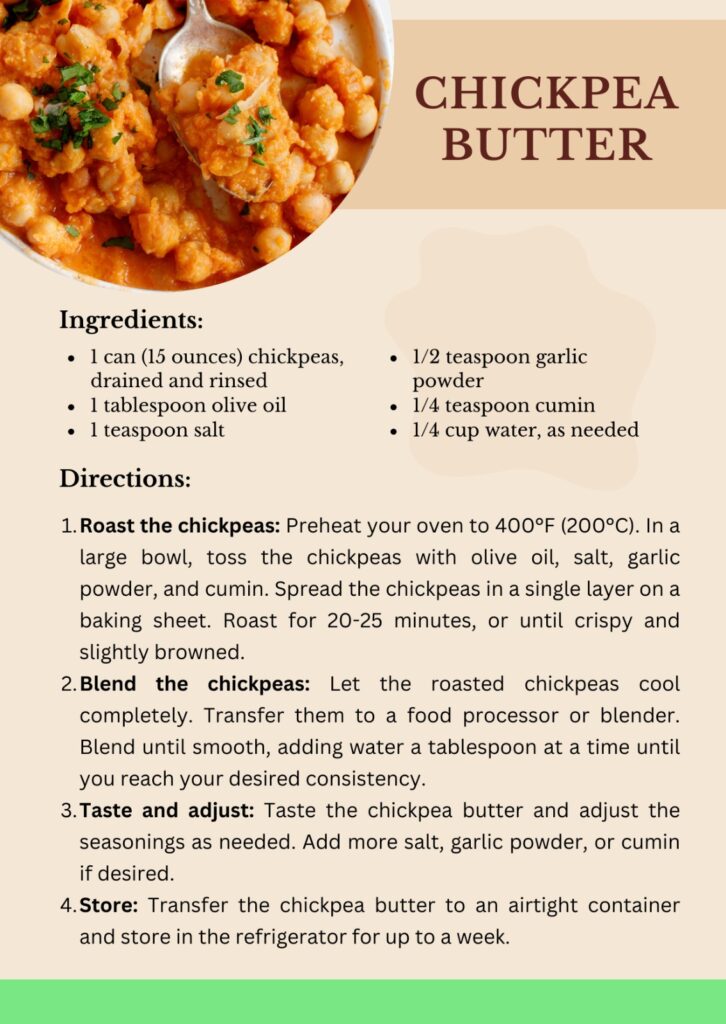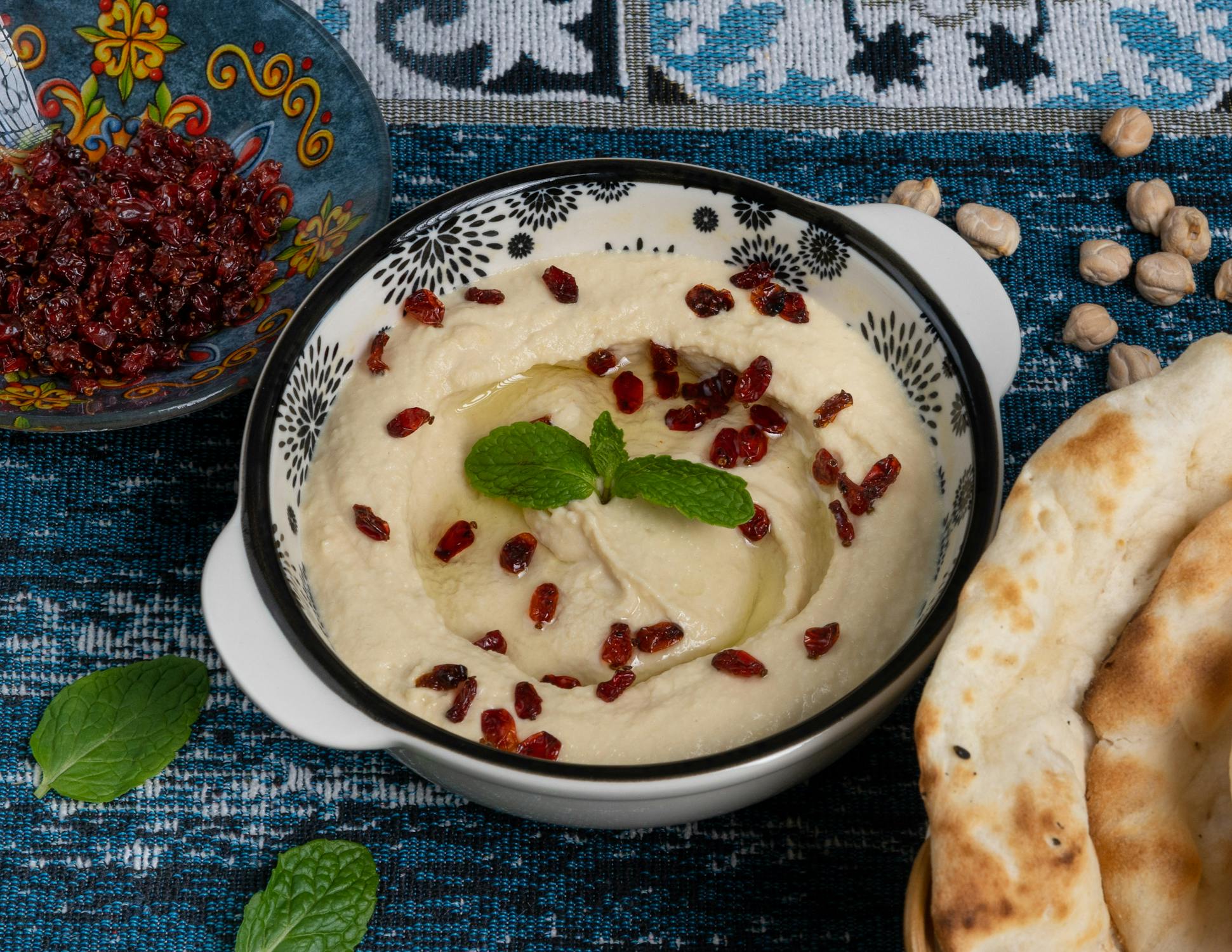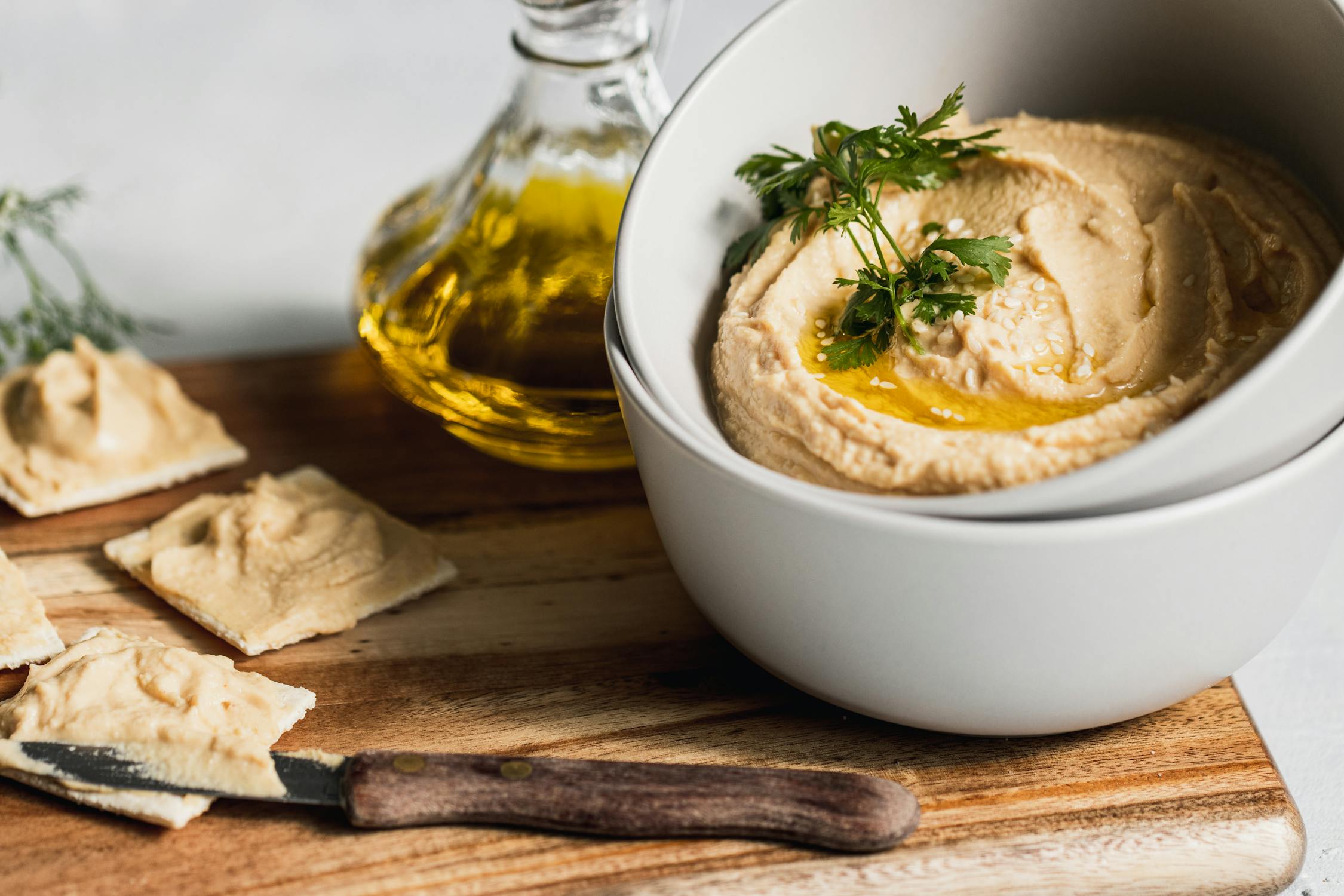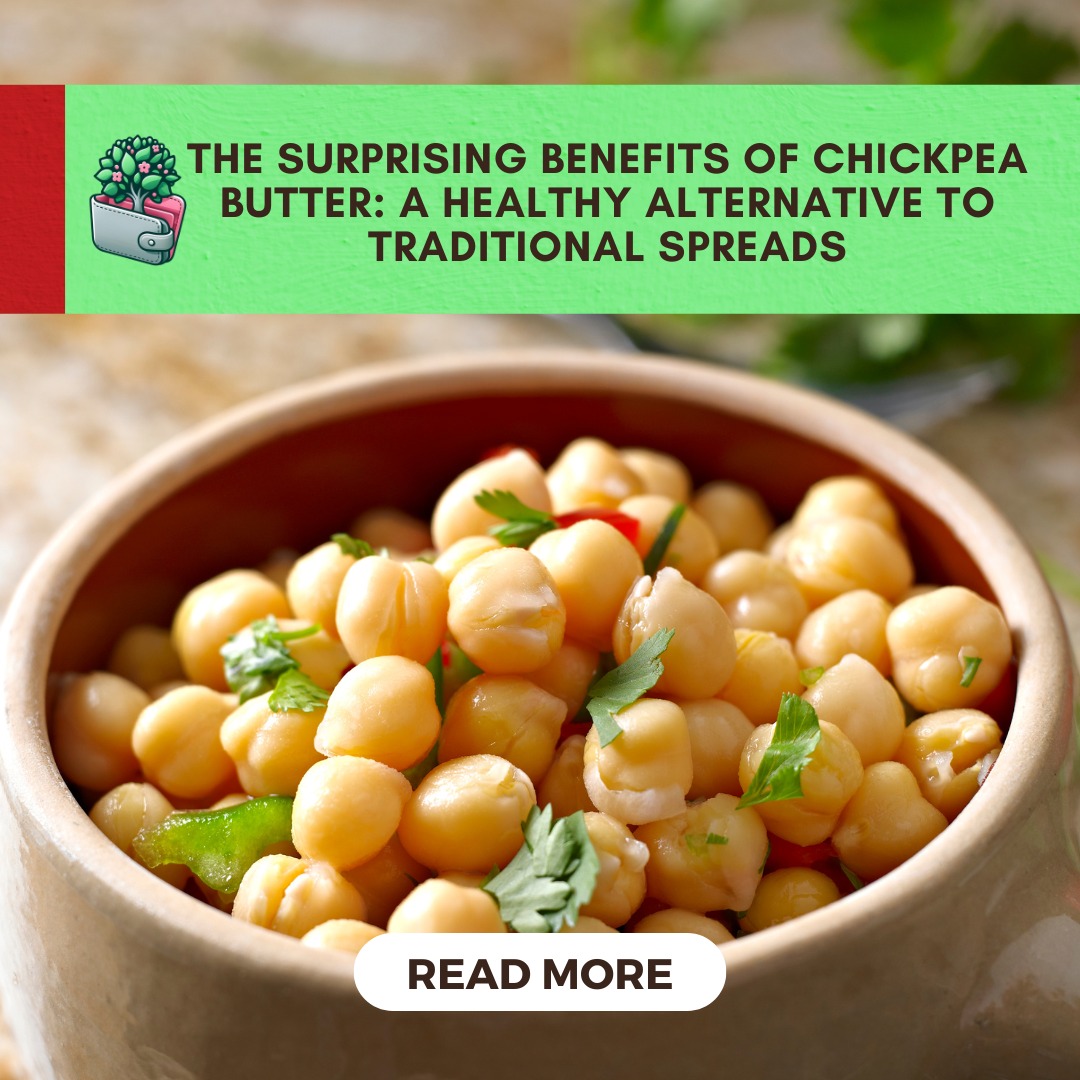Tired of the same old peanut butter and jelly? Get ready to discover a game-changing spread that’s packed with flavor, nutrition, and a whole lot of surprises! Chickpea butter, the latest culinary sensation, is here to revolutionize your breakfast, snacks, and beyond.
Join us as we delve into the surprising benefits of this plant-based powerhouse and explore endless ways to incorporate it into your daily diet.

What is Chickpea Butter?
Ever heard of chickpea butter? This creamy, nutty spread is a delicious alternative to traditional nut butters. Made from roasted butter chickpeas, often blended with oil and seasonings, chickpea butter offers a unique flavor profile with a subtle sweetness and nutty taste.
Whether you’re using it as a dip, spread, added to garam masala, or ingredient in various recipes, chickpea butter is a versatile and healthy option made from high-quality ingredients.
According to Tasting Table, “Chickpea butter is not the same as hummus. Where hummus is usually made with ingredients like garlic, lemon juice, tahini, and olive oil, chickpea butter is not. The spread is much thicker and contains sugar so that it leans sweet and can be primarily marketed as a replacement for peanut butter.”

Nutritional Benefits
Beyond its delicious taste, butter chickpeas are a nutritional powerhouse. Packed with protein and fiber, it’s a satisfying and filling snack that can help keep you feeling full and energized.
Here’s a breakdown of its nutritional benefits:
1. Protein Powerhouse
Chickpea butter is a rich source of plant-based protein, essential for building and repairing tissues.
2. Fiber-Rich
The high fiber content helps promote digestive health, regulates bowel movements, and contributes to a feeling of fullness.
3. Essential Vitamins and Minerals
Chickpea butter is packed with essential vitamins and minerals, including folate, manganese, and copper, which play crucial roles in various bodily functions.
4. Heart Health Support
The healthy fats in chickpea butter, such as monounsaturated and polyunsaturated fats, can help support heart health by lowering cholesterol levels.

5. Digestive Aid
The high fiber content can also aid in digestion, making it a great choice for those with sensitive stomachs.
6. Nutrient-Dense
Chickpea butter offers a wide range of nutrients in a relatively small serving, making it a nutrient-dense food.
According to Medical News Today, “Chickpeas are rich in fiber and protein. They contain several key vitamins and minerals. Some benefits of chickpeas may include helping reduce the risk of type 2 diabetes, and supporting brain and nervous system function.”
Comparison to Other Nut Butters
While chickpea butter shares a similar taste and texture to sunflower seed butter, it offers a slightly sweeter and nuttier flavor that sets it apart. Compared to peanut butter, sunflower seeds, and other nut butters, chickpea butter is generally lower in fat and calories, making it a healthier choice for those watching their intake.

With its distinct flavor profile and texture, chickpea butter stands out from traditional nut butters. It can be used as a substitute for butter or other spreads in various recipes, adding a nutritious and flavorful twist.
For individuals with peanut allergies or intolerances, chickpea butter provides a delicious and safe alternative. Its unique composition and nutritional benefits make it a valuable addition to any pantry.

Chickpea Butter Essential Ingredients
- 1 can (15 ounces) chickpeas, drained and rinsed
- 1 tablespoon olive oil
- 1 teaspoon salt (i.e. kosher salt)
- 1/2 teaspoon garlic powder
- 1/4 teaspoon ground cumin
- 1/4 cup water, as needed
- (Optional) 1/4 teaspoon smoked paprika
Instruction
- Roast the chickpeas: Preheat your oven to 400°F (200°C). In a large bowl, toss the chickpeas with olive oil, salt, garlic powder, and cumin. Spread the chickpeas in a single layer on a baking sheet. Roast for 20-25 minutes, or until crispy and slightly browned.
- Blend the chickpeas: Let the roasted chickpeas cool completely. Transfer them to a food processor or blender. Blending or stirring occasionally until smooth, adding water a tablespoon at a time until you reach your desired consistency.
- Taste and adjust: Taste the chickpea butter and adjust the seasonings as needed. Add more salt, garlic powder, or cumin if desired.
- Store: Transfer the chickpea butter to an airtight container and store in the refrigerator for up to a week.
Using Chickpea Butter in Recipes
Chickpea butter is more than just a tasty spread. It’s a versatile ingredient that can elevate your dishes in countless ways. Here are a few ideas:
1. Dipping Delight: Use chickpea butter as a dip for your favorite vegetables, crackers, or chips.
2. Flavorful Sauces and Marinades: Add a creamy and nutty twist to sauces and marinades by incorporating chickpea butter and cooking in medium heat.
3. Baking Bliss: Substitute chickpea butter for traditional butter or other spreads in your baked goods and desserts.
4. Lemon Garlic Goodness: Create a delicious and healthy sauce by combining chickpea butter with lemon juice, garlic, fenugreek leaves, and your favorite herbs.
5. Vegan Butter Chicken: Enjoy a plant-based version of butter chicken by using chickpea butter, coconut milk, and canned tomatoes or tomato paste.

According to Healthline, “Chickpeas are incredibly easy to add to your diet. They’re affordable and widely available in both canned and dry varieties. Due to their high protein content, they’re an excellent substitute for meat on vegetarian and vegan diets. Plus, chickpeas are versatile and can be added to a variety of dishes, such as salads, soups, or sandwiches.
They’re also a main ingredient in hummus, which is a dip made from mashed chickpeas, tahini, olive oil, lemon juice, salt, and garlic. Finally, you can roast chickpeas for a delicious and crunchy snack, or incorporate them into veggie burgers and tacos.”
Nutrition and Allergen Information
Chickpea butter is a versatile and nutritious spread with several benefits:
Allergen-Friendly
Made from roasted chickpeas, oil, and seasonings, it’s naturally free from common allergens like peanuts and tree nuts.
Dietary Considerations
While it can be made without soy or dairy, cross-contamination during processing might occur. It’s also low in sodium and added sugars, making it a healthy option for those with dietary restrictions.

Homemade Option
To ensure a customized recipe without potential allergens, consider making chickpea butter at home using canned chickpeas, sunflower seed, and your favorite spices like red pepper flakes.
Fat Content
Keep in mind that chickpea butter can be high in fat due to the addition of oil. However, it still offers a healthier alternative to traditional nut butters.
Final Thoughts
Chickpea butter is a delicious and nutritious alternative to traditional spreads and nut butters. With its unique flavor profile, subtle sweetness, and nutty taste, it’s a versatile ingredient that can be used in a variety of recipes. Whether you’re looking for a dip, sauce, baked good, or dessert, chickpea butter can add a flavorful and healthy twist.
For individuals with peanut allergies or intolerances, or those seeking a lower-calorie and lower-fat spread, chickpea butter is an excellent option. And if you’re feeling adventurous, you can even make your own at home using simple ingredients and spices to customize the flavor to your liking. So why not give chickpea butter a try and discover a new favorite spread?
Final Thoughts
How is Chickpea Butter different from hummus?
Chickpea butter is a creamy, nutty spread made from roasted chickpeas blended with oil and seasonings. Unlike hummus, which typically includes ingredients like garlic, lemon juice, and tahini, chickpea butter is thicker, sweeter, and intended as a spread similar to peanut butter. It’s often marketed as a peanut butter alternative, offering a unique flavor with nutritional benefits.
Is chickpea butter healthy?
Yes! Chickpea butter is rich in plant-based protein, fiber, and essential vitamins and minerals like folate and manganese. It also contains healthy fats that can support heart health and aid digestion. With its high fiber and protein content, chickpea butter is a satisfying option that keeps you full and energized, making it a healthy addition to your diet.
What does chickpea butter taste like?
Chickpea butter has a creamy, slightly nutty flavor with a mild sweetness. It’s similar in texture to peanut butter but has a unique taste that’s slightly earthier and subtly sweet, making it versatile for both sweet and savory recipes.
Is chickpea butter suitable for people with nut allergies?
Yes, chickpea butter is a great alternative for people with peanut or tree nut allergies, as it’s made from chickpeas rather than nuts. However, always check labels for potential cross-contamination during processing if you have severe allergies. You can also make chickpea butter at home to control ingredients and avoid any allergens.


